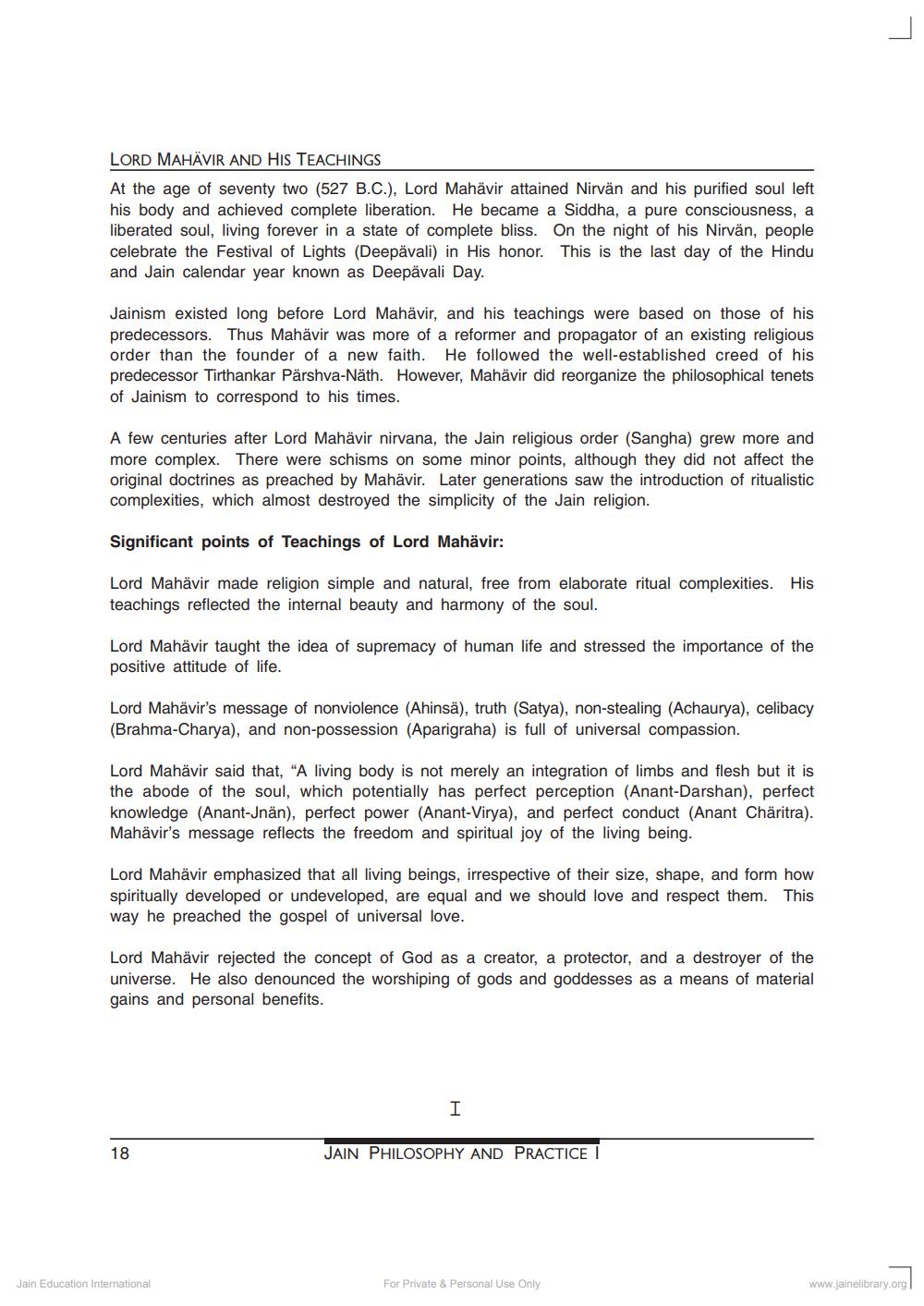________________
LORD MAHÄVIR AND HIS TEACHINGS
At the age of seventy two (527 B.C.), Lord Mahävir attained Nirvän and his purified soul left his body and achieved complete liberation. He became a Siddha, a pure consciousness, a liberated soul, living forever in a state of complete bliss. On the night of his Nirvän, people celebrate the Festival of Lights (Deepävali) in His honor. This is the last day of the Hindu and Jain calendar year known as Deepävali Day.
Jainism existed long before Lord Mahävir, and his teachings were based on those of his predecessors. Thus Mahävir was more of a reformer and propagator of an existing religious order than the founder of a new faith. He followed the well-established creed of his predecessor Tirthankar Pärshva-Näth. However, Mahävir did reorganize the philosophical tenets of Jainism to correspond to his times.
A few centuries after Lord Mahävir nirvana, the Jain religious order (Sangha) grew more and more complex. There were schisms on some minor points, although they did not affect the original doctrines as preached by Mahävir. Later generations saw the introduction of ritualistic complexities, which almost destroyed the simplicity of the Jain religion.
Significant points of Teachings of Lord Mahävir:
Lord Mahävir made religion simple and natural, free from elaborate ritual complexities. His teachings reflected the internal beauty and harmony of the soul.
Lord Mahävir taught the idea of supremacy of human life and stressed the importance of the positive attitude of life.
Lord Mahävir's message of nonviolence (Ahinsä), truth (Satya), non-stealing (Achaurya), celibacy (Brahma-Charya), and non-possession (Aparigraha) is full of universal compassion.
Lord Mahävir said that, "A living body is not merely an integration of limbs and flesh but it is the abode of the soul, which potentially has perfect perception (Anant-Darshan), perfect knowledge (Anant-Jnän), perfect power (Anant-Virya), and perfect conduct (Anant Charitra). Mahävir's message reflects the freedom and spiritual joy of the living being.
Lord Mahävir emphasized that all living beings, irrespective of their size, shape, and form how spiritually developed or undeveloped, are equal and we should love and respect them. This way he preached the gospel of universal love.
Lord Mahävir rejected the concept of God as a creator, a protector, and a destroyer of the universe. He also denounced the worshiping of gods and goddesses as a means of material gains and personal benefits.
18
Jain Education International
I
JAIN PHILOSOPHY AND PRACTICE I
For Private & Personal Use Only
www.jainelibrary.org




